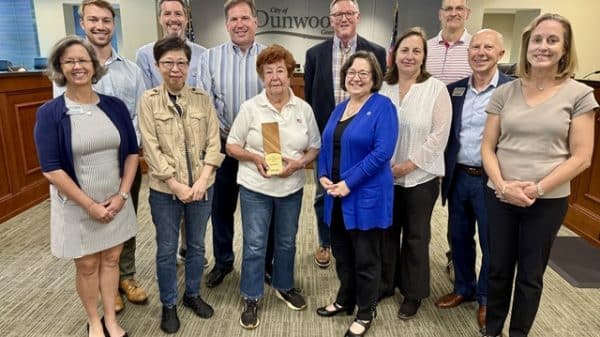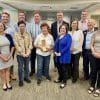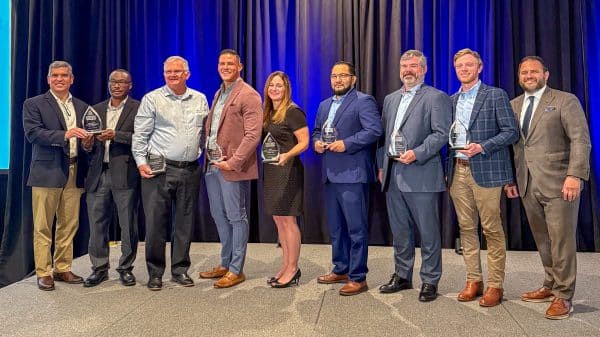About one-tenth of residents in Peachtree Corners, Norcross, Berkeley Lake are of Asian descent.
The United States pretty much became a country because of trade. From cotton, tobacco, sugar, rice and wheat in colonial times to fuel, aircrafts, auto parts and technology today, doing business with other countries was a basis for its establishment. Much of that still exists, with Georgia among the top 20 exporting states.
But international business today is much more sophisticated than it was when European explorers staked claims on parts of the “new world.”
A big part is recognizing and respecting other cultures, including the natives of other countries as well as those who’ve made America their home. That’s why setting aside time to acknowledge their impact on this country and the rest of the world is important.
In May, we recognize people of Asian and Pacific Islander heritage.
Here in Gwinnett County, that’s the fastest growing demographic — more than doubling in many areas since the last census. About two-thirds are naturalized citizens, with the remainder born in the U.S.
Steps toward inclusion and justice
But these Gwinnettians aren’t content to just be residents. Many are making strides in government, technology, industry, education and entrepreneurship.
For example, Gwinnett County now has its first County Commission of Asian descent, Ben Ku. Elected in 2018, he’s worked toward equality for all constituents.
Earlier this year, the commissioners approved a budget item to include sample ballots and voter outreach materials printed in four Asian languages. Champions of voter rights applauded the measure.
“We’ve worked in partnership with Latinx and AAPI communities for the past several years to advocate for voting and election materials in languages other than English. Today, we can finally celebrate that Gwinnett County fulfilled our requests, by providing more robust voting access for our growing Asian American communities in Georgia,” said LaVita Tuff, Policy Director at Advancing Justice-Atlanta in a written statement.
She added, “At a time when widespread voter suppression tactics are attempting to silence our electoral power, Advancing Justice-Atlanta welcomes the addition of sample ballots in four Asian languages as an important step to protecting our democracy for limited-English proficient voters.”
It’s those type of strides that make for a richer community and show the world that this piece of the planet embraces diversity and inclusion, advocates have said.
Percentage of Asian and Pacific Islander Population
Source: U.S. Census
| 4.5% | Georgia |
| 12.5% | Gwinnett County |
| 9% | Peachtree Corners |
| 12.2% | Berkeley Lake |
| 10.6% | Norcross |

ICA students immersed in cultures
The International Charter Academy (ICA) of Georgia, a K-5 state charter school focused on Japanese language and culture, is another example of how the area thinks globally and acts locally.
“The State Department designates Japanese language as a critical language here in Georgia, because there are over 600 Japanese companies in the state,” said Felecia Tucker-Jones, principal at ICA Georgia. “Global literacy in youth is low in America as a whole. So, we educate children in a multicultural environment that enables them to appreciate different perspectives across many fields such as geography, history and the fine arts. … Georgia students gain the experience of studying in a Japanese school, they learn some of the same materials as their Japanese peers and participate in Japanese school life, including Japanese music, cultural events, healthy Japanese food and Japanese calligraphy.”
She added, “So our students here are immersed in Japanese culture. And we also include other cultures as well.”
With Asian Pacific Heritage Month in May, the school, like many others, exposes children to aspects of the 48 Asian countries in the world, as well the 14 Pacific Island countries, to help broaden their perspectives.
“Japanese is a little different. But we want them to see that there are connections and that there are similarities among them. It could be religion. It could be ethnicity, ethical beliefs, the way they dress, things like that,” said Tucker-Jones.
Growing to fill the needs of more students
While the majority of students are Japanese and decedents of other Asian countries, there are White, Black and Hispanic children at the school as well. The concept has become so popular, Wright-Jones said, that the school received applications for more than 100 kindergarteners for the 2022-2023 school year.
“We can accommodate them all,” she said. “But it’s an indication of how important this kind of curriculum is becoming.”
A new surgical center is being constructed across the street, and Wright-Jones said she receives inquiries almost daily from parents who like the idea of their children’s school being so close. With an estimated several hundred employees moving there, she has received calls from people from as far away as California and Germany who are curious about what the school has to offer.
The style of teaching is immersive, with students learning all core subjects in both English and Japanese. ICA Georgia uses a higher ratio of time spent in Japanese in younger grades and shifts to balance more evenly with English as students age.
As a state charter school, ICA Georgia is open to every student in the state. It’s not a private school. It receives state funding but also accepts donations.
The ICA board is looking to extend the learning into a middle school for students as they advance in age. Tucker-Jones said there is plenty of room and many parents have expressed a desire to see their children continue the course of study.
With meetings for accreditation already underway, she is cautiously optimistic that the four-year-old school will be adding those extra grades in the next two years.
“We’ve seen a lot of changes in the school since we started… in the beginning, of course, it was chaotic. But now we’ve we have a solid culture. … You walk into our building, and you have a sense of community, a family. Our parents are very involved in what we do here. Our students are very comfortable,” said Tucker-Jones. ##















